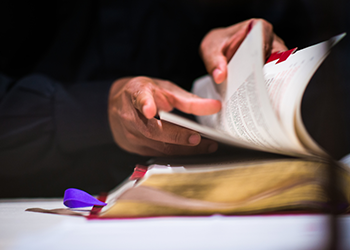Many students double-major in theology and apply what they've learned to jobs in business, nursing, law, psychology and other fields.
Can I afford to double-major?
Yes! Students from other colleges sometimes fear double-majoring would delay their graduation. That is almost never the case. If you choose the courses well (e.g., take theology credits for Diverse Culture, which will count for the UCC, the core of the College of Communication and toward the major) and find together with the director of undergraduate studies cognate courses in your field, double-majoring is sometimes only 19 credits away.
Need help with a double-major?
The department's Director of Undergraduate Studies can work with students to see how you can successfully graduate with your desired double-major.


